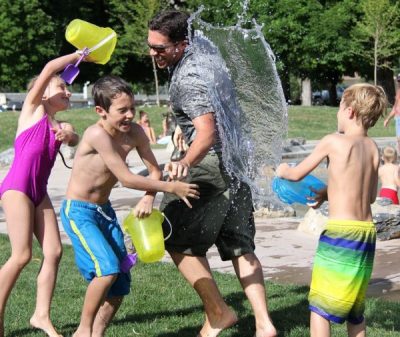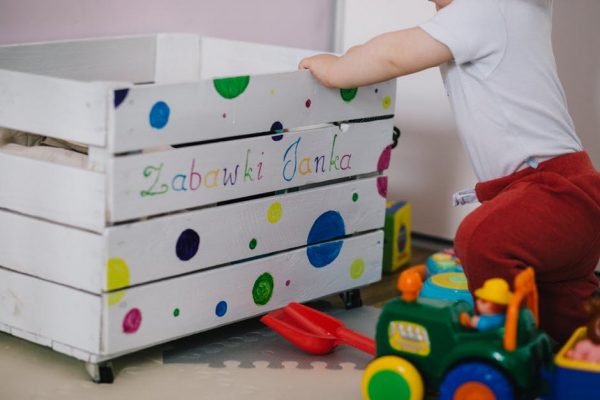Although our children are little, they can sweep through our houses like tornadoes in a matter of minutes leaving mess and destruction in their place. As parents, we are then left to pick up the pieces thinking “how can something so small make such a big mess?”
In moments where we need a tidy space to reclaim our sanity but we know that our efforts will be completely null and void the very next day, we need to clean a messy house fast. Here are 4 quick and easy ways to do just that.
A clean house comes down to 4 key areas
Want your house to look tidy in a flash? If you’re overwhelmed with mess and don’t know where to start, these 4 areas are key. If you tackle these first, these will have the most visual impact and your house will look clean and tidy and ready for guests in no time.
-
Start with surfaces
Cluttered worktops and tabletops make your home look a lot messier than it actually is so clear these surfaces first. Whether you just stack the items into organized piles or put the items away in their designated places, the space will immediately appear bigger and much tidier and ready to welcome guests.
Cleaning tip: what are the items that are frequently cluttering your surfaces? If they are piles of important documents, file them on a shelf elsewhere; if they are magazines or books, read them and recycle or give them to charity; and if they are toys, put them away.
-
Wipe down the kitchen
The kitchen should be next on your list when it comes to trying to clean a messy house fast. Why? Because it is such an integral part of your home and one of the most popular places to congregate. When tidying this hotspot, try to clean and tidy generally so that it looks spick and span on the surface.
Cleaning tip: clear off the worktops first so that they have as few items on them as possible. Next, wipe down the worktops and appliances, clean the sink and sweep the floors to make the space look clean and open.

-
Tackle the bathrooms all at once
Bathrooms can look grubby because of their white surfaces, but what’s great about bathrooms is that they don’t take long to clean and they look so good when they are. When you clean your bathrooms, clean them all at once. Keep a bucket under your sink with a sponge, multi-surface cleaner, kitchen roll, and bin bags, and just take this from room to room with you to tackle them all quickly.
Cleaning tip: if you’re short on time and a guest is coming over, just clean the bathroom that they will be using. Add a diffuser to make it smell even nicer.
-
Finish with the floors
The last area that you should focus on to clean a messy house fast is the floors. As they are such a big surface area, you’ll be surprised how much of an impact an open and clean floor makes. Just sweeping floors in a rush can make a massive difference visually, but if you have the time, mopping the floors and hoovering the rugs and carpeted areas can completely transform rooms.
Cleaning tip: sprinkle baking soda on carpets and let it sit for 20 minutes before hoovering. You’ll find that this helps with stubborn odours.
A tidy house means a tidy mind
While a messy house is a symbol of a home well-lived in full of memories, there are always moments where it can get you down. To keep on top of the cleaning, try tackling these 4 areas frequently and you’ll soon find that your house looks tidy and smells great the majority of the time. If not, just whip out these 4 tricks when you are expecting a guest!

At Schoolhouse Daycare, we enjoy learning, encouraging confidence and we love life! If you think your child would enjoy life at Schoolhouse, then please do not hesitate to arrange a visit.


















